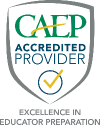What you will study
A bachelor’s degree in Special Education with a concentration in Cross-Categorical
Disabilities from UCM will give you insight into the nature of the learning process.
Understanding how individual learners differ, as well as how to address diverse emotional,
social, physical and cognitive needs, will enable you to craft ideal educational experiences
for each of your students.
Coursework for this Special Education Teaching degree may include:
- Educational Psychology: Survey the psychological concepts, theories and techniques critical for successful
teaching.
- Education of the Exceptional Child: Learning to recognize, teach and support extraordinary learners is an important part
of how to become a special education teacher. You’ll have the opportunity in this
course for on-site work with exceptional children.
- Introduction to English Language Learners and Culturally Responsive Pedagogy: Teachers in Special Education programs periodically need to teach English Language
Learner (ELL) students with special needs. Additionally, learn how to include frameworks
such as race, ethnicity, socioeconomic status, gender, sexual orientation and religion
in your teaching to fully connect with your students and achieve more successful learning
outcomes.
Excellence in Special Education
- Accredited by the Council for Exceptional Children (CEC)
- Accredited by the Council for the Accreditation of Educator Preparation (CAEP)
- A Best Value Bachelor’s Degree College for General Special Education (College Factual, 2022)
- A Best Value College for Elementary Education (College Factual, 2022)
- A Best Value College for Junior High/Intermediate/Middle School Education & Teaching (College Factual,
2022)
- Top 15%: Best Value Bachelor’s Degree College for Elementary Education (College Factual, 2022)
- A Most Focused Bachelor’s Degree College for Education (College Factual, 2022)
- A Most Focused College for Secondary Education (College Factual, 2022)
- Top 15%: Most Focused Colleges for Education (College Factual, 2022)
- Top 4.5%: Most Popular Colleges for Secondary Education (College Factual, 2022)
- Top 5.5%: Most Popular Bachelor’s Degree Colleges for Education (College Factual, 2022)
- Top 6%: Most Popular Colleges for Education (College Factual, 2022)
- Top 6%: Most Popular Colleges for Elementary Education (College Factual, 2022)
Unique learning opportunities in special education for students with cross categorical
disabilities
The University of Central Missouri is well-situated to give students in our Special
Education programs teaching experience in a variety of settings — before graduation.
Strengthen your special education teaching skills with hands-on, real-world experiences
in suburban, urban and rural districts, in resource rooms and in self-contained classrooms:
- Community connections: In the course of earning your bachelor’s degree in Special Education at UCM, you’ll
work closely with other educators, individuals with exceptionalities and their families,
service providers and community members. Many of your Cross-Categorical Disabilities
program classes will include targeted field work to give you depth as well as breadth
of experience before you graduate.
- Student engagement: UCM has an active chapter of the Student Council of Exceptional Children. Get involved
for more ways to meet and support exceptional individuals, both on campus and in the
community.
- Student teaching: In addition to the on-site field work that supports your learning in certain classes,
a student teaching experience at the end of your degree program will give you hands-on
experience in how to be a special education teacher for students with cross-categorical
disabilities.
What can you do with a Special Education degree in Cross Categorical Disabilities
from UCM?
When you major in Special Education at the University of Central Missouri, you’re
choosing a career path that’s as in-demand as it is fulfilling. Graduates of UCM’s
Special Education programs, including the Cross-Categorical Disabilities area, enjoy
a 100% employment rate after graduation — many of our students have even been approached
with employment offers before they graduate.
Your Special Education Teaching degree in Cross-Categorical Disabilities will qualify
you for state-wide certification. Many graduates go on to work in K–12 schools, but
your bachelor’s degree in Special Education may also qualify you for educational jobs
in a variety of settings.
Career choices for a major in Special Education
Use our interactive tool below to find out more about job trends and salaries with
a bachelor’s degree in Special Education for students with Cross-Categorical Disabilities.
Financial assistance options for your Special Education Teaching degree
The University of Central Missouri offers an affordable, high-quality education. We
believe that a respected Special Education Teaching degree should be accessible to
all. Over 90% of our undergraduate students receive some form of financial aid, including
loans, grants, work-study opportunities and scholarships.
In addition to our university-wide resources, as a major in Special Education in the
Cross-Categorical Disabilities area, you may be eligible for these exclusive funds:
- Coonley-Guth Scholarship in Special Education
- Dr. Don Rice Scholarship in Special Education
- Cleary Scholarship in Special Education
While our advisors can help you find the best way to finance your education, you can learn more about program-specific scholarships by using the UCM Scholarship Finder.
Drive Better Outcomes for All
Data-driven, culturally responsive pedagogy
Learn how to become a special education teacher at one of the most respected institutions
in the region. Grounded in our 150+ years of specialization in training educators,
the University of Central Missouri’s Special Education programs incorporate the most
effective, modern techniques for teaching children across the full spectrum of abilities.
Cutting-Edge Facilities
Take advantage of the MIC
As a major in Special Education in the Cross-Categorical Disabilities area, you may
be able to enroll in courses offered at our Missouri Innovation Campus (MIC). Secondary
and post-secondary education come together for mutual enrichment in this progressive
joint initiative of the University of Central Missouri and the Lee’s Summit R-7 School
District.
100% Employment Rate
Choose your own path
Your Special Education Teaching degree in Cross-Categorical Disabilities from the
University of Central Missouri will open many doors for you. The nationwide shortage
of special education teachers, combined with UCM’s reputation for producing effective,
consistent and compassionate educators, means that our graduates have their choice
of job opportunities upon graduation.
leftright
















